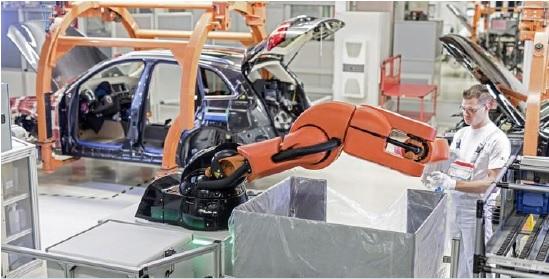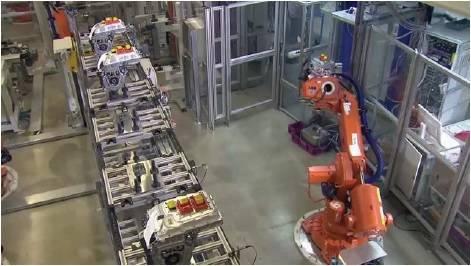AI (Artificial Intelligence):5 Key Advantages Disadvantages
Advertisement
This article explores the benefits and drawbacks of Artificial Intelligence (AI), along with real world application examples.
What is AI (Artificial Intelligence)?
Artificial Intelligence (AI) refers to the development of computer systems capable of performing tasks that typically require human intelligence.
- Examples of tasks that leverage AI include:
- Visual perception
- Speech recognition
- Decision-making
- Navigation systems
- Translation between languages
- Machine learning is a subset of AI that empowers machines to learn and improve from experience without explicit programming or human intervention.
- Initially, AI was developed for home automation, allowing users to control electrical devices, adjust speed/volume, and more.
 Cobot
Cobot
- There are two main categories of AI:
- Weak AI: These machines respond to specific situations based on pre-programmed instructions. They lack the ability to think independently. Examples include game AI, search intelligence, voice recognition, behavioral biometrics, and cobots.
- Strong AI: These machines can think and act like humans. They learn from experiences and adapt accordingly. Examples include robotics and autonomous war machines like drones and robots.
 Robot
Robot
Application Examples
- AI powered robots in movies that can talk, think, and exhibit emotions, making decisions like humans.
- Self driving cars navigate without human input, using AI algorithms to avoid collisions and adjust speed based on obstacles.
Advantages of AI (Artificial Intelligence)
Following are key benefits of AI.
- AI based machines (drones, robots) can operate autonomously in battlefields, reducing human casualties in wars and dangerous workspaces (car accidents, natural disasters, etc.).
- AI simplifies everyday life by assisting with tasks like cleaning, shopping, and transportation. It can also perform tasks impossible for humans.
- AI can recognize faces, voices, and human manipulation.
- AI devices facilitate human interaction through language translation and processing capabilities.
- AI devices can be controlled by voice, text, or both, making the technology accessible to individuals with physical disabilities.
- AI enables algorithm-based search suggestions on platforms like Google, benefiting both buyers and sellers through machine learning.
- AI is becoming increasingly integrated into our lives and accessible to all categories of people.
- AI in schools benefits students, teachers, and management by improving information handling, reducing information overload, and converting data into knowledgeable databases.
Disadvantages of AI (Artificial Intelligence)
Following are some of the drawbacks or limitations of AI.
- AI powered weapons can cause significant destruction due to their high precision and accuracy in attacks.
- AI powered machines can compromise people’s privacy and security.
- AI powered devices and machines are expensive due to complex programming and the need for experienced programmers.
- AI may displace human workers, leading to increased unemployment rates.
- Over reliance on AI can diminish critical thinking skills.
- Machines might turn against user commands, potentially leading to dangerous situations.
Conclusion : Artificial Intelligence (AI) offers transformative benefits such as automation, efficiency and data driven decision making across various industries. However, it also poses challenges including job displacement, ethical concerns and potential misuse. Balancing innovation with responsible AI development is essential for maximizing its positive impact.
Advertisement
 RF
RF



